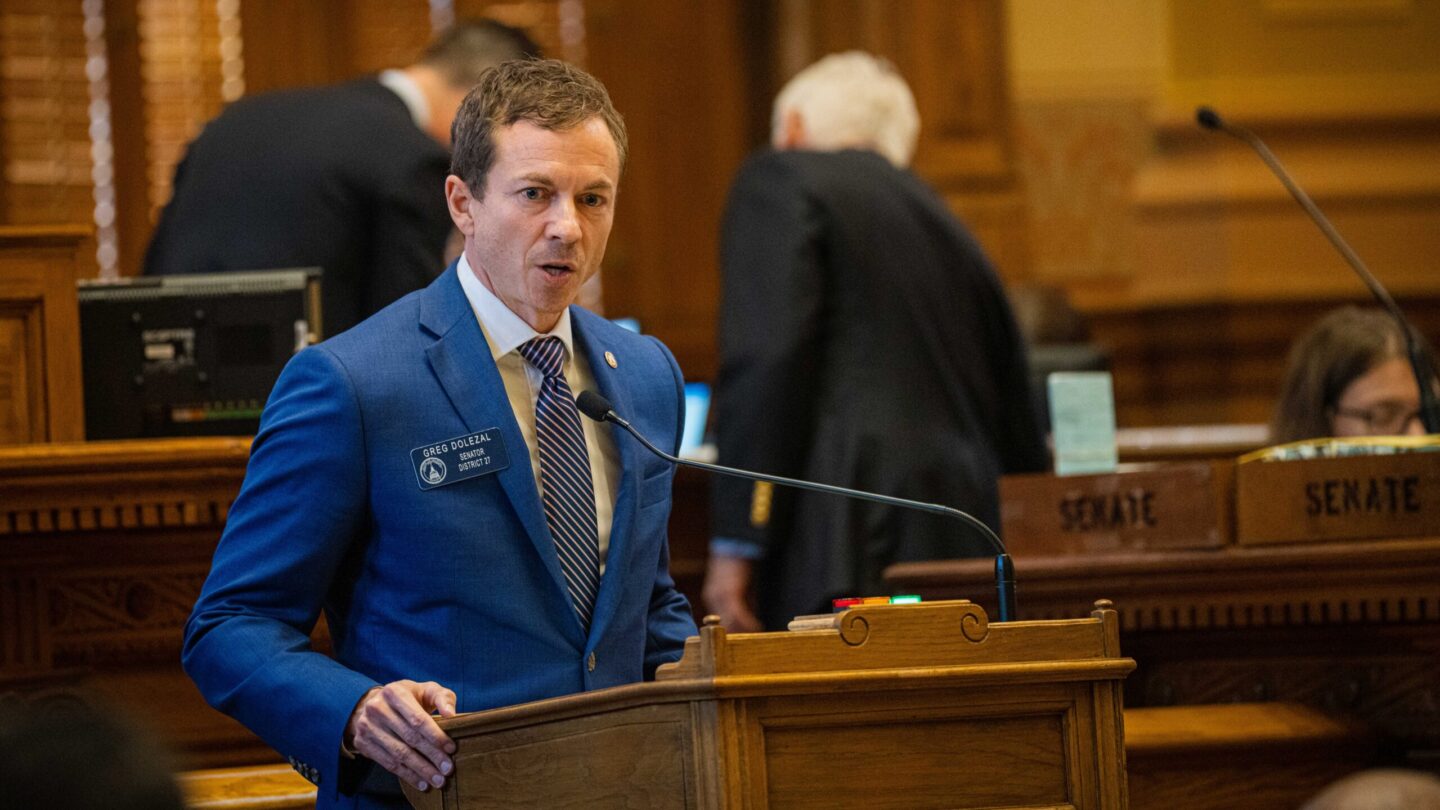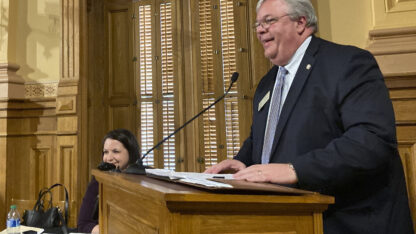Georgia Senate: $6,000 for those leaving low-rated schools

The Georgia Senate is supporting a plan to give $6,000 educational vouchers to students who would otherwise attend low-performing schools, part of a nationwide push for what supporters call education savings accounts following the COVID-19 pandemic.
The Senate voted 33-23 on Monday to pass Senate Bill 233 along party lines, sending it to the House for more debate. Voucher bills have historically gotten cooler receptions in that chamber.
Supporters argue that the vouchers for private school tuition, homeschooling supplies, therapy, tutoring or even early college courses for high school students would help students who aren’t well-served by poor-performing schools.
“I have said in most instances, public education is the best option,” said Sen. Matt Brass, a Newnan Republican. “It was the best option for my child. But I recognize that it is not the best option for each and every child, each and every day.”
Facing opposition, supporters on Monday cut the bill down so that only children who live in the attendance zones served by the schools scoring in the lowest 25% of the state’s rating system could benefit. Before then, students who attended all public schools statewide, as well as any student eligible to enter kindergarten or first grade could have benefitted. Students currently in private school would not qualify.
Opponents argue the bill would pressure the state’s $12.5 billion K-12 school funding formula, and that $6,000 would not be enough to pay tuition at most private schools, meaning the money would benefit middle class and rich families more than poor ones.
“What we’re essentially doing here is defunding public education and subsidizing rich kids,” said Nabilah Islam, a Lawrenceville Democrat.
Supporters, though, note the program would take new students only in years in which the state fully funds its K-12 formula. Bill sponsor Greg Dolezal, a Republican from Cumming, also noted that local public school districts would keep their property tax dollars allocated for public education.
“The local money stays where it’s at,” Dolezal said.
Democrats say the bill is fueled in part by fights over race-related education and how to address gender issues in schools. They say Republicans shorted Georgia’s funding formula every year for more than a decade and haven’t focused on alleviating poverty and improving literacy instruction.
“You take out the millions, you don’t work on the issues that matter, and then you use little trick bills like this to pull money out and say, ‘Well the schools are so bad that now we need to give everyone the money to go to a private school,'” said Sen. Elena Parent, an Atlanta Democrat.
Georgia already has programs giving vouchers for special education students in private schools and state income tax credits for donors to private school scholarship funds. A bill is pending to increase tax credits for donors to the private school scholarships, from $120 million to $130 million a year.
One of the big criticisms of Georgia’s current school choice program is that it’s impossible to tell how beneficiaries are doing academically. Under the bill passed Monday, students participating in this voucher program would have to take a yearly standardized test, either from the state or from some national group, which Dolezal lauded as an accountability feature.
State senators rejected a similar plan last year on a 29-20 vote, although some Republicans who voted no may have been motivated by opposition to then-Sen. Butch Miller’s bid for lieutenant governor. Miller lost a primary to current Republican Lt. Gov. Burt Jones. The road could be even tougher in the House, where some rural Republicans have long resisted school choice expansions.
Follow Jeff Amy on Twitter at http://twitter.com/jeffamy.








